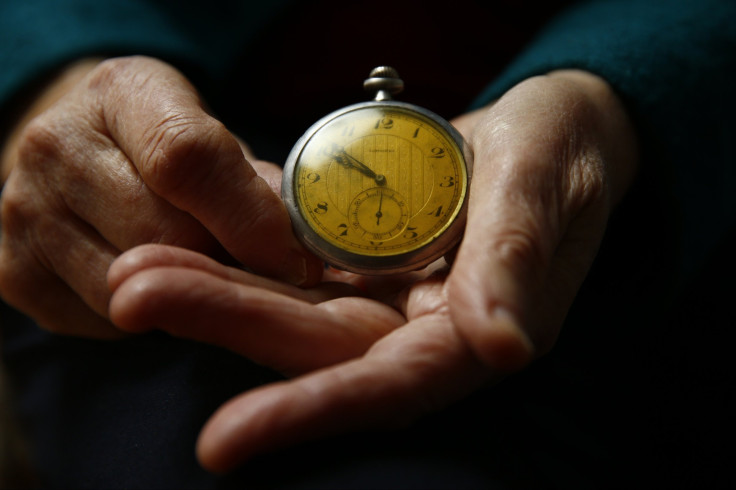Holocaust Memorial Day: Auschwitz Survivors Return 70 Years After Liberation

In the weeks after his liberation from Nazi captivity, Israel Arbeiter would wake up crying and screaming. In the five years he spent in concentration camps, including Auschwitz, his family was murdered, his possessions were gone -- and now he had nowhere to go.
“I’m free now, but free to do what? To go where? I didn’t have two cents in my pocket. Just my Auschwitz uniform,” he told International Business Times, recalling his thoughts after he was liberated on his 20th birthday, April 25, 1945.
Nearly 70 years later, Arbeiter, along with 300 other survivors, will be returning to Auschwitz on Tuesday for the anniversary of the camp’s liberation by Soviet forces. Thousands of guests will attend the ceremony at the former concentration camp in the present-day Polish town of Oswiecim. Russian President Vladimir Putin’s chief of staff, Sergei Ivanov, is expected to attend, as well as Polish President Bronislaw Komorowski. Treasury Secretary Jack Lew, who is Jewish, will represent the United States at the ceremony.
Ronald Lauder, president of the World Jewish Congress, will speak at the ceremony along with three survivors. While his speech will focus on the lessons of the Holocaust, Lauder said he could not ignore the reality for many European Jews -- particularly since the Jan. 9 attack at a kosher supermarket in Paris that left four people dead.
“To rehash Auschwitz without talking about Paris and anti-Semitism would be a mistake,” Lauder said.
And this year’s anniversary is particularly important, Lauder said. “For millions of survivors, this is the last chance to be there, because the next one will be the 75th and very few will be around,” he said.
Arbeiter agrees. While he has revisited Auschwitz in the past, at 89 years old he does not plan to go back after this trip.
“There aren’t too many Auschwitz survivors who are alive. There are less and less every year,” Arbeiter said. According to the World Jewish Congress, Arbeiter is the sole remaining survivor of the Auschwitz barracks.
“I believe I have an obligation as a Holocaust survivor to tell the world my story. If not [me], then who will?” Arbeiter said.
Arbeiter was liberated on the third day of a death march in the Black Forest, after the Germans transported him and fellow prisoners back to Germany proper. He remembers standing in the middle of a highway when the SS guards abandoned him and the other prisoners.
“They lined up and started a forward march,” Arbeiter said. “After they took their first step, all of us started running into the Black Forest.” Over the next few hours he made friends with four other boys. They kept each other warm in the brush until they heard a commotion on the highway. One boy went to explore and discovered an overturned truck.
“He came back with goodies -- like Santa Claus. We had a fiesta,” Arbeiter said.
The following morning they were liberated by the Free French Forces. Arbeiter was transported to a displaced persons camp in Stuttgart, Germany.
“The first week, I was numb,” Arbeiter said. After five years of being told when to wake, sleep and eat, he struggled to adjust to a free life. “I was brought up in terrible circumstances where the life of a human being didn’t mean anything,” he said. “I was 20 years old, but I was really only 14.”
Today Arbeiter lives in Massachusetts with his wife, Anna, also a Holocaust survivor. The pair met during the Holocaust and were later reunited after they were liberated. He says their three children, three grandchildren and two great-grandchildren partially eclipse the horror he lived through, but he will never forget.
“There’s not a day in my life where some scenery does not remind me. You can’t get it out from you. It’s in you,” he said.
© Copyright IBTimes 2024. All rights reserved.






















